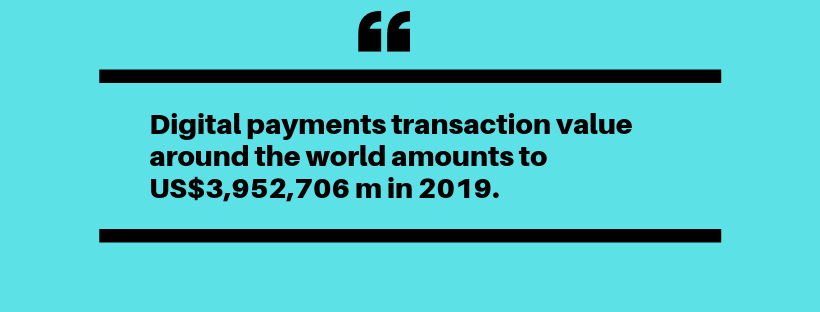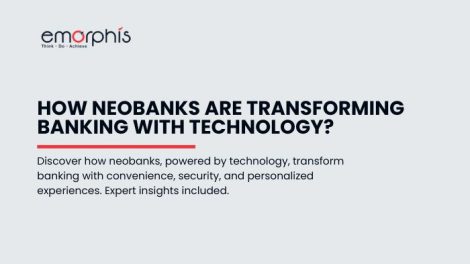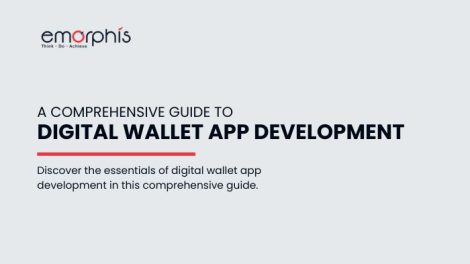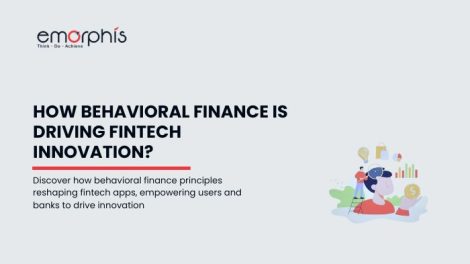The financial services industry is riding on the wave of fintech app development going through a creative and evolutionary period. The user experience is transforming with Fintech applications for financial services. Right from ATMs (Automated Teller Machine) and swipe machines to online and mobile banking, mobile wallets, and apps for automated bill payments; Fintech apps have improved customer banking and payment experience. Moreover, Fintech solutions also streamline the process and reduce costs, along with the improved convenience and comfort of carrying out financial activities.
Fintech application development companies have come a long way when it comes to developing a secure Fintech application with enhanced security and keen interest from all sectors; today Fintech is disrupting the Financial industry.
Some of the best and biggest financial services are reshaping the product of Fintech applications.
Billing and Payments Applications/Software
In previous years, credit card firms, major banks, and massive financial giants dominated and managed payments and transactions. However, the advent of digital payments/billing apps has changed the entire scenario and shaken the major players' control of payments. With full ease and accessibility, digital payments have turned conventional cash-based operations into cashless ones. According to Statista, the transaction volume of digital payments around the world amounted to US$ 3,952,706 million in 2019. Businesses offering payment solutions use new technology solutions like cameras, blockchain, fingerprint, and retina scans for seamless POS processing and enhanced mobile-based user interaction.

The Digital Payments/Billing solutions have two major sectors
1. B2B payments (& cross border payments)
The 2016 Bloomberg study reveals that the B2B and cross-border payments amounted to $150 trillion then and this means that by now it must have increased by an immense sum. Although security, accuracy, and flexibility have been a major challenge for B2B payments and cross-border transactions, technical solutions are available to help companies achieve safe payments and transactions. Some of these channels for the technology include—
- Customized & private Blockchain systems with the most protection & accountability for real-time transactions.
- E-invoice platforms for easier approvals and delivery of payments.
- Payment processing systems that give customers a variety of payment methods or wallets to choose from.
- Mobile B2B platforms for faster payments and enhanced data management.
Paypal, Payfirma, Wepay, and so on are among the best examples of efficient B2B payments or cross-border payment solutions.
2. Mobile Payments
With mobile wallets, such as Apple Pay, Samsung Pay, Google Wallet, etc., more and more people choose to use mobile wallets instead of their credit cards to initiate payments. While there have been security problems when using mobile payments, biometrics and NFC technology have helped to mitigate these issues.
Digital Banks
Banking institutions offer applications for "banking as a service" for their customers to carry out online banking activities. Online banking increases consumer experience by incorporating technological advances like Artificial Intelligence, biometrics, speech, and face recognition. Online banking, considering the digital mode, is highly cost-effective. Atom Bank (with digital mode only and no branches) is one of the only digital banks. The rationale for digital banks being cost-effective is that it does not attract costs to their customers by having physical premises and offering convenience. The branchless concept substantially reduces costs compared to traditional banking.
Mobile Banking Applications
The financial sector is in fact, embracing digital platforms for services, with many companies transitioning to digital modes. In reality, banks, similar to their customers, are also quick to adapt to technology. In fact, with safe logins, mobile banking apps deliver all banking operations at your fingertips.
Money Remittance/ Money Transfer
We remember names such as Transferwise, TransferGo, WorldRemit, etc. when the term cash remittance arrives. These businesses allow users to send money to more than 100 countries and the recipients can receive the sum through bank deposit, cash pick-up counters, mobile money, or even delivery at times. Money remittance/transfer alternatives make the procedure less time-consuming, less costly, and potentially do not even require the sending of funds abroad. The peer-to-peer (P2P) money transfer network takes care of it. P2P is one of the best Fintech developments to invest in and grow. The P2P platform connects two people's digital wallets to exchange money. There are three common types of P2P networks/applications:
- Standalone platforms (which do not rely on other financial organizations to conduct a transaction). PayPal is a standalone P2P application.
- P2P applications from Bank Centric (with a financial organization as a transaction intermediary).
Other than P2P money transfer sites, another primary path in the growth of fintech applications is P2P lending. With reduced costs, P2P lending is aimed at speeding up and automating the loan request & process. Lending platforms easily track the time of approval of the loan, collect cash from the borrower, and streamline the entire process.
The most striking aspect of P2P lending services is that machine learning is used to recognize and spot borrowers who do not deserve loans based on their credit score. Intelligent system-backend algorithms estimate a customer's creditworthiness.
Prospect acquisition, burrower application, credit signing and tracking, disbursement, collection, and recovery are taken care of by P2P lending applications.
Personal Finance Management Applications
It has never been easier to manage your finances before than now with the personal finance management or money management applications available in the market. Whether it is bill payment, shared expenses, managing subscription amounts, debt payoffs, or any other wealth management functions; PFM applications are at your fingertips. In the form of data visualization, categorization, and spending patterns, these applications allow users to collect all personal money accounts and list personal finances.
Robo-Advisors are the newest personal finance management advisory services in the industry that are automated and run on algorithms that recommend wealth management. Betterment LLC is one such company for personal financial management & wealth management focused on robo-advisory.
Insurtech
In the insurance technology market, CB Insights announced $1 billion in funding. As analytics and technology can use data to assess customized deals and dynamic pricing for individual customers, insurance Fintech Applications are a major benefit for the insurance industry. To analyze consumer trends, Insurtech applications are also created and custom insurance products are created based on this knowledge. For example, for an individual seeking car insurance, the application will determine driving patterns and recommend a payment strategy based on the same. Insurtech software also helps each client to select from the best insurance plans.

To Move Forward
The above sectors are some of the highest-performing areas of financial services. Moreover, they have changed a lot due to the rapid growth in the development of Fintech applications; some have developed very well and some are at a success stage that is increasing. Investment in the financial technology sector will offer positive results in the future. There is a need for enhanced security safeguards with more technologies in use. As Fintech app development service developers must once follow best practices to ensure the security of Fintech apps. But in the end, it's fair to assume that in the coming years, Fintech is expected to increase by leaps & bounds.
Further, read details on Choosing the right Enterprise Mobility solution for your Business







